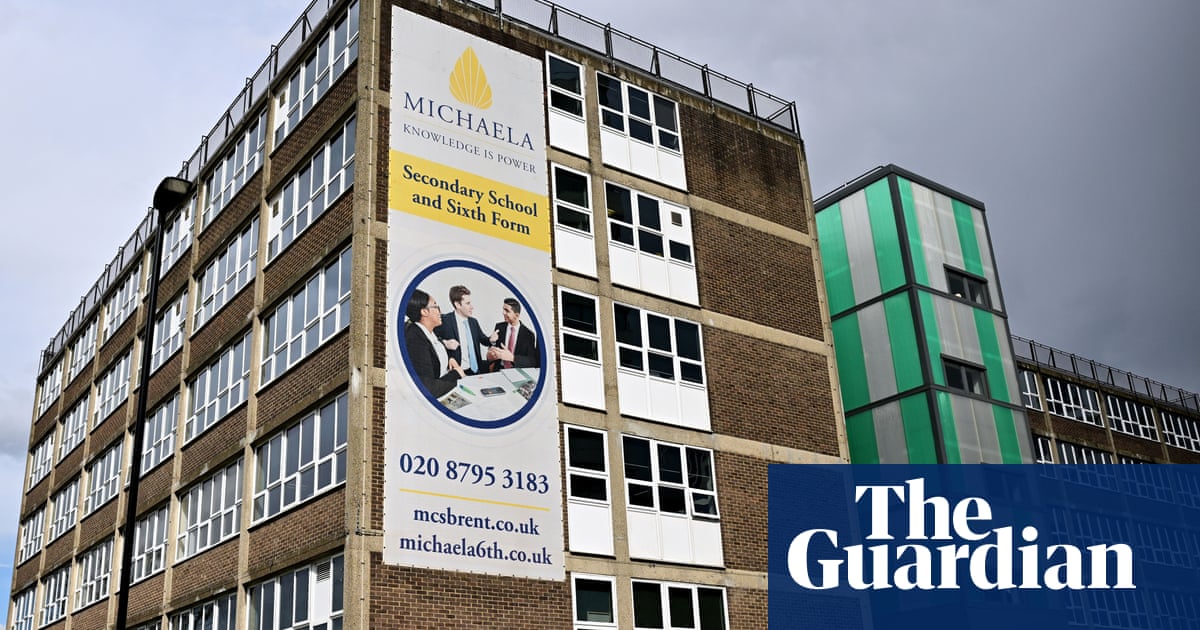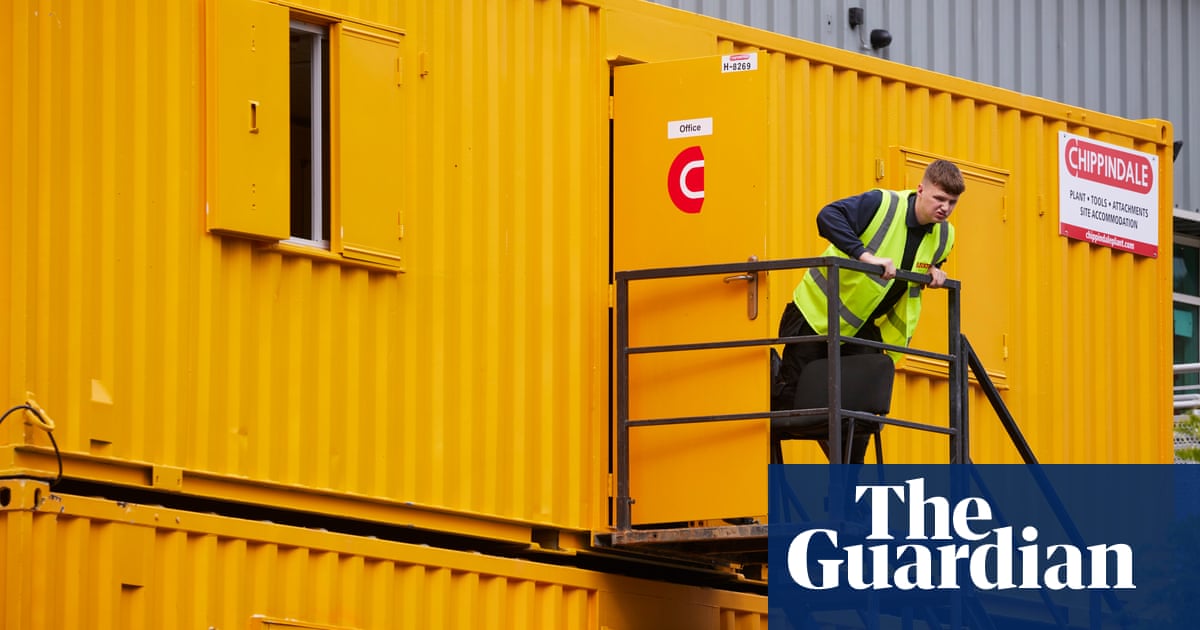
Pupils at a school thought to be the worst hit by the “crumbling concrete” crisis in England have described their despair and disillusion in a report that sets out in detail the severe and ongoing disruption to their education.
St Leonard’s Catholic school in County Durham was one of only two secondary schools required to fully close after the Department for Education (DfE) raised the alarm last year about scores of potentially unsafe school buildings affected by reinforced autoclaved aerated concrete (Raac), which is prone to sudden collapse after it has exceeded its lifespan.
Since then, many of the 1,400 pupils have been bussed to makeshift classes in different sites, including a Radisson hotel and Ushaw College, a 19th-century former Catholic seminary, losing valuable lesson time because of travel, the University of Durham report says.
Overstretched teachers have delivered lessons to up to 240 pupils at a time, pastoral sessions have been scrapped to squeeze in more academic work and single subjects have been taught in blocks, sometimes for a whole day, often in halls converted into makeshift classrooms where noise carries and it is difficult to concentrate.
The situation has been so dire that the chief executive of the school trust said it was “like we were going through the pandemic again, but on our own”, evoking the chaos and uncertainty of Covid that led to schools being closed and exams cancelled.
Pupils’ emotional health and wellbeing have been affected, with fears they are not ready to face their exams, while the reputational damage done to the school has reportedly led to pupils and staff leaving. Pupils say it has been even worse than Covid, seeing their peers in other schools progress as normal while they fall behind.
As a result of the Raac disruption, which has been exacerbated by the discovery of asbestos on the site, many pupils are weeks behind in the curriculum and internal assessments show many are achieving a grade lower than expected, according to the report published on Thursday.
It recommends that pupils facing GCSE and A-level exams this summer should be given special consideration, with adjustments of up to an extra 10% on their marks to reflect the severe and continuing disruption to their learning.
“Coming to school gives me so much anxiety,” said one of the school’s GCSE students. “Each day there are changes in the timetables and seating plans. There is no routine of classes. There is no continuity of events in the school, which makes me so nervous and not like to come to school.”
A year 8 pupil said: “I feel I am not learning. We do different lessons but I cannot understand anything.”
One A-level student said: “I have missed many days and my attendance has been very low in this term. I don’t feel like coming to school because it is a noisy and chaotic place.”
Vocational, technical and science lessons have had to be cancelled due to there being limited or no access to specialist facilities, affecting subjects such as design and technology, art, music and food technology, among others. University applications are “chaotic”, with teachers offering vital advice from the front of a bus, en route to and from lessons. Teachers are “exhausted”, “depressed” and “worked off their feet”. Staff absence has increased and some early career teachers have left.
Nick Hurn, the chief executive of the Bishop Wilkinson Catholic education trust, which includes St Leonard’s, called on the education secretary, Gillian Keegan, to direct the exams regulator for England, Ofqual, to allow special consideration for pupils sitting GCSEs and A-levels this summer because of the “relentless and disruptive” impact of Raac.
“We don’t accept that the minister cannot intervene, as precedent was set during Covid. In fact, I would go as far to say that school and trust staff have felt like we were going through the pandemic again, but on our own. To say it hasn’t had an impact is simply ignoring the facts.”
Mary Kelly Foy, the Labour MP for City of Durham, was due to meet the schools minister, Damian Hinds, this week to press the school’s case. Speaking before the meeting, she said the report painted a stark picture of what pupils had endured since their school lives were turned upside down last September.
“Pupils have endured 17 weeks of disruption to their education, which has been no fault of their own. Families, the school and the trust were offered reassurance after reassurance by government ministers, yet pupils continue to be taught in freezing cold classrooms while temporary buildings are delayed, have limited access to specialist facilities for practical subjects, Send [special educational needs and disabilities] pupils are forced to learn in environments which don’t suit their needs and teaching time is interrupted by bus journeys to other sites.
“Teachers are burning out, they’re doing everything they can to support their pupils but their energy and motivation is finite and their wellbeing is suffering.”
According to the DfE, as of 27 November, there were 231 schools in England with confirmed Raac, of which 228 were providing full-time face-to-face education for all pupils. Three settings had hybrid arrangements in place – they are all now in full-time face-to-face education for all pupils. In Wales, it was announced this week that no further cases of Raac had been identified and all schools were open for all pupils.
“The safety of staff and pupils is paramount,” a DfE spokesperson said, “and we have been working at pace with schools, including St Leonard’s, to identify Raac and minimise disruption to pupils’ education. We have asked awarding organisations to, where possible, agree longer extensions for coursework and non-examined assessment so that schools have as much time as possible to complete this important part of pupils’ learning and qualifications.”












